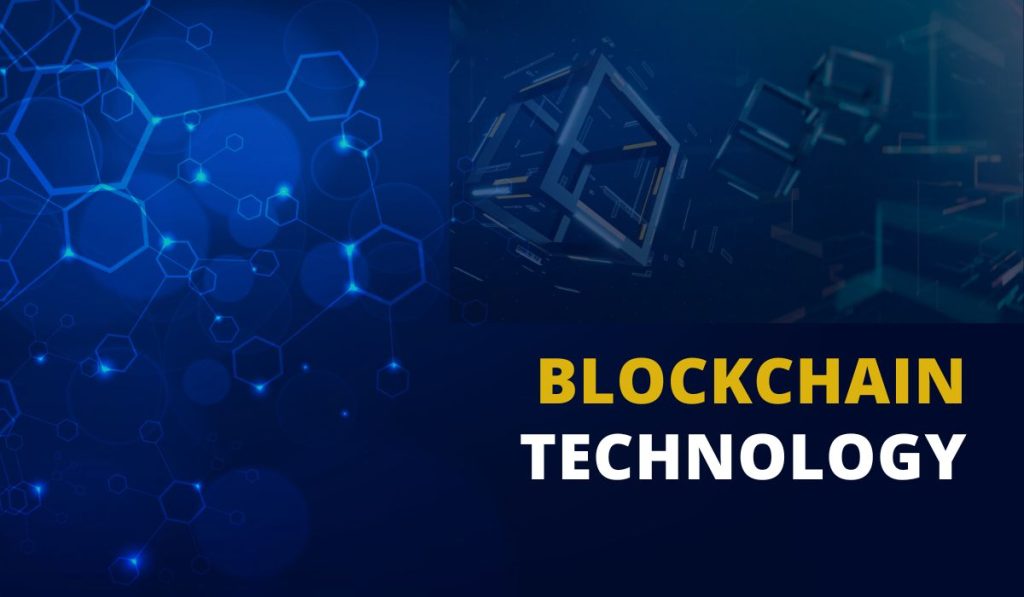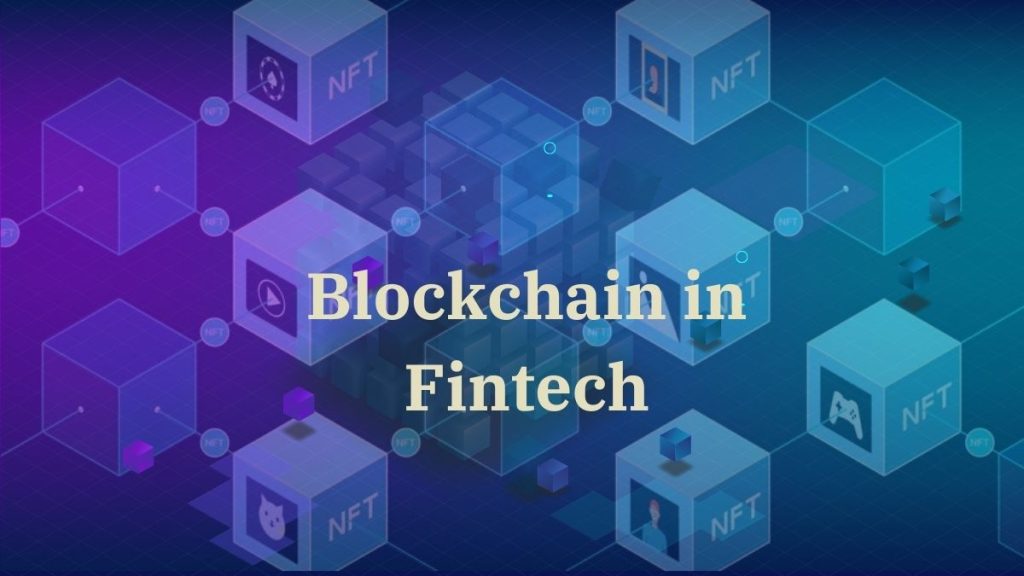Blockchain in Fintech: The Power of Blockchain Technology in Fintech Evolution
In the dynamic world, Blockchain is the future wizard of finance! It is a super cool technology that’s changing the way money stuff works. Blockchain in Fintech is a very effective part of the modern era. The confluence of Blockchain and Fintech stands out as a formidable duo, reinventing traditional norms and practices. This journey into the fusion of these two technological marvels reveals how they are collectively revolutionizing the financial sector. Let’s delve into the fundamental concepts of Blockchain, trace Fintech’s evolution, explore their practical uses, tackle the challenges they face, and look forward to a promising future.
Cryptocurrency, the most well-known application of blockchain, has been an investment option since the early 2010s. However, it’s only in recent years that cryptocurrencies have transitioned from niche obscurity to gaining a level of mainstream legitimacy in digital finance. During this period, fintech companies have explored blockchain technology, finding innovative solutions to longstanding problems in the industry.
Definition of Blockchain and Fintech
What is Blockchain?
Blockchain technology is a method of storing and recording data. Created for currencies, like Bitcoin it operates as a ledger that permanently records all transactions. Each “block” in the chain contains a collection of confirmed transactions that cannot be modified.

Unlike systems controlled by an authority, multiple participants manage this chain of blocks ensuring accuracy and reliability. The versatility of blockchain extends beyond cryptocurrencies finding applications in securing business transactions and improving supply chain processes.
What is Fintech?
Fintech, which stands for technology refers to the use of technology to deliver financial services and products. This tech-driven approach is transforming the way we handle our finances by making transactions faster simpler and more affordable. Fintech encompasses services ranging from banking and digital payments to advanced features like automated investment advice and peer-to-peer lending.

The growth of Fintech is fueled by consumer demand for personalized financial services establishing it as a significant player, in today’s financial landscape. As technology continues to advance Fintech will redefine our experiences becoming a part of modern finance.
Navigating the Intersection of Blockchain and Fintech:
In the modern world, blockchain meets fintech, a place where technology changes our financial transactions and wealth management in amazing ways.”
Understanding Blockchain Technology
Blockchain is a cool tech that’s changing how we keep our data safe and make deals online. Let’s break it down into simple parts to see how it works.
Decentralization:
Instead of one person or group in charge, Blockchain spreads control across many people. This makes things safer and fairer for everyone.
Distributed Ledger:
Imagine a big book of records that’s not just in one place, but spread out everywhere. That’s what Blockchain does – it keeps track of everything in many places so everyone can see and trust it.
Cryptography:
This is a fancy word for secret codes. Blockchain uses these codes to keep all your transactions safe. It’s like having a super-secure lock on your data.
Transactions and Blocks:
Think of Blockchain like a chain of blocks. Each block is like a box full of transactions, or exchanges, that have happened. Once a box is full, it’s sealed and linked to the chain, making a permanent record.
Consensus Mechanisms:
This is how everyone using Blockchain agrees on what’s true. It’s like a group decision-making process that makes sure everyone’s on the same page.
Smart Contracts:
These are like automatic agreements on Blockchain. They follow rules set in the code to make deals go smoothly without needing a middleman.
So, that’s the basics of Blockchain! It’s about spreading out control, keeping records in many places, using secret codes for safety, putting transactions into blocks, everyone agreeing on what’s true, and automatic contracts. All this stuff together makes Blockchain a really secure and efficient way to handle online transactions and data.
The Evolution of Fintech
Traditional Financial Systems
Historically, financial systems relied on outdated structures plagued by inefficiency, slow processing, and limited access.
Rise of Fintech:
Fintech emerged, disrupting traditional financial services with innovations like digital payments and online lending. These advancements focused on speed, accessibility, and ease of use, paving the way for Blockchain integration.
Integrating Blockchain in Fintech:
This union has been transformative, tackling longstanding financial industry challenges. It has introduced enhanced security, cryptographic techniques, immutable transactions, and greater transparency.
Applications of Blockchain in Fintech:
- Digital Identity Verification: Blockchain offers a secure, decentralized solution, reducing identity theft risks.
- Cross-Border Payments: simplifies international transactions, cutting down on delays and fees.
- Smart Contracts in Financial Agreements: These automate contractual rules, diminishing the need for intermediaries.
- Supply Chain Financing: Blockchain’s transparency aids in transaction tracking, minimizing fraud.
- Tokenization of Assets: It facilitates digital representations of assets, promoting fractional ownership and liquidity.
Challenges and Risks:
While the benefits are significant, acknowledging and addressing the challenges is essential.
- Regulatory Compliance: Balancing innovation with complex regulations is a key challenge.
- Scalability Issues: As transaction volumes grow, scaling the technology remains a concern.
- Standardization Challenges: Developing industry-wide standards is vital for interoperability.
- Public Perception and Trust: Overcoming historical perceptions to build trust in Blockchain-based systems is crucial.
Integration of Blockchain in Fintech
The integration of Blockchain technology in Fintech is redefining the financial landscape, bringing about efficiency, security, and cost-effectiveness. Let’s explore how this integration is transforming financial services.

Cryptographic Techniques:
Blockchain’s integration in Fintech heavily relies on cryptographic techniques. These techniques ensure the security and privacy of transactions, safeguarding sensitive financial data against unauthorized access and cyber threats.
Immutability of Transactions:
One of the standout features of Blockchain in Fintech is the immutability of transactions. Once a transaction is recorded on the Blockchain, it cannot be altered or deleted, thereby ensuring the integrity and trustworthiness of financial records.
Real-time Settlements:
Blockchain enables real-time settlements in Fintech. This means transactions can be processed almost instantly, a significant improvement over traditional banking systems that often take days to settle transactions.
Auditability:
The integration of Blockchain brings enhanced audibility to financial services. With a transparent and unchangeable ledger, tracking and verifying financial transactions becomes easier, reducing the chances of fraud and errors.
Cost Reduction:
Blockchain technology cuts down costs in Fintech by eliminating many traditional banking fees and overheads. This cost reduction is primarily due to the absence of middlemen and the efficiency of the Blockchain system.
Elimination of Intermediaries:
A key advantage of using Blockchain in Fintech is the elimination of intermediaries. By facilitating direct transactions between parties, Blockchain reduces the need for brokers, agents, and other middlemen, streamlining financial processes.
Efficient Cross-border Transactions:
Blockchain greatly improves the efficiency of cross-border transactions. It overcomes the usual barriers like high fees and slow processing times, making international financial transactions faster, cheaper, and more accessible.
The integration of Blockchain in Fintech is more than just a technological upgrade; it’s a paradigm shift offering unparalleled benefits in terms of security, speed, cost, and transparency. As this technology continues to mature, its potential to revolutionize the financial sector is immense, promising a future where financial transactions are more efficient, secure, and user-centric.
Future Outlook of Blockchain
The future of Blockchain in Fintech is bright, with ongoing advancements and emerging trends shaping its path.
- Integration with Emerging Technologies:
- Pairing with technologies like AI, ML, and IoT can enhance efficiency and security.
- Collaboration with Traditional Financial Institutions:
- Bridging the gap between new and traditional finance is key for a smooth transition and continued evolution.
Frequently Asked Questions
1. What is Blockchain in Fintech?
Think of Blockchain in Fintech as a super-secure way to keep track of money stuff using computers. It’s like a magic book that writes down every transaction safely.
2. Why is Blockchain good for Fintech?
Blockchain is great because it keeps money things safe, makes transactions happen fast, saves money by cutting out the middleman, and makes everything clear and open.
3. Can Blockchain keep our money transactions safe?
Absolutely! Blockchain is like a strong safe for our transactions. It’s really hard for anyone to mess with it, so our money stays safe.
4. What are Smart Contracts in Fintech?
Smart Contracts are like robot agreements on the computer. They automatically make sure that people stick to their deals in finance, without needing someone else to check.
5. How does Blockchain make things clearer in finance?
Blockchain acts like a clear window, showing every transaction that happens. Once something is written, nobody can erase it, making everything very clear and honest.
6. Why is it good that Blockchain doesn’t have one boss?
Without one boss controlling everything, it’s like having a lot of little helpers keeping an eye on things. This makes it harder for anyone to do something sneaky and keeps our money safe.
7. Are there any tricky parts about using Blockchain in money stuff?
Yes, sometimes it can be slow when lots of people use it, and it needs to follow rules. Also, some people don’t understand it yet, and everyone needs to agree on how to use it.
8. How does Blockchain protect our private information in transactions?
Blockchain uses secret codes to keep our details safe. Everyone can see the transaction happened, but they don’t know who it was, keeping our information private.
9. What’s the future like for Blockchain in Fintech?
The future looks exciting! Blockchain could change the way we use money, like using digital money, sending money to different countries easily, and creating new ways to manage our finances.
10. Can Blockchain stop people from cheating in finance?
Yes! Because Blockchain writes everything down in a way that can’t be changed, it’s really hard for people to cheat or make mistakes. This makes everything much safer and more honest.
Read More:
- Hire the Best Fintech Developers
- Fintech Software Development Services
- Fintech Mobile App Development
- Top Fintech Companies In USA
Conclusion
In conclusion, the blending of Blockchain and Fintech marks a revolutionary phase in finance. It goes beyond enhancing security and improving transaction transparency; it is revolutionizing the way we manage our finances and assets. With Blockchain’s trustworthiness and Fintech’s innovative approach, we’re stepping into a future where financial services are more efficient, inclusive, and user-friendly. This blend of technologies isn’t just a trend – it’s the new norm in finance, offering exciting possibilities for everyone in the digital era. As we embrace this evolution, ‘Blockchain in Fintech’ stands out as a key phrase highlighting a revolution in how we manage our financial lives online.






